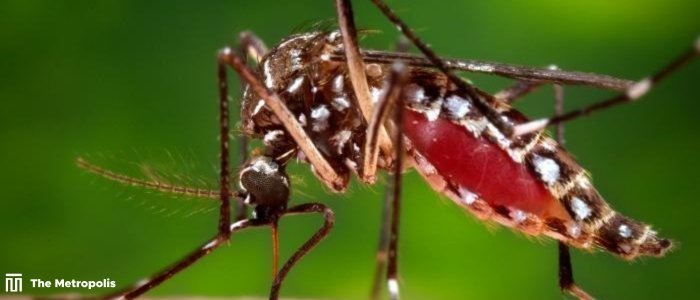Photo: Collected-
Metropolis Desk-
The UN World Health Organization (WHO) has reported a significant surge in dengue fever cases in Bangladesh, with 80,074 confirmed cases and 373 related deaths between January 1 and August 11.
The outbreak is attributed to an unusual episodic amount of rainfall, high temperatures, and humidity, resulting in an increased mosquito population throughout the country.
Dengue symptoms typically begin four to 10 days after infection and last for two to seven days. The WHO emphasizes that early detection and appropriate healthcare for case management can significantly reduce mortality.
Health authorities have established a dedicated dengue control room, repurposed six hospitals in Dhaka, and established dedicated dengue wards and dengue corners.
They are providing training to healthcare staff, supplying supportive medicines, and stepping up surveillance, risk communication, community engagement, and laboratory testing.
The WHO assessed the dengue risk at the national level as “High” due to the escalating case numbers, high case fatality rate, and extensive geographical distribution of cases.
The UN health agency calls for integrated vector management (IVM) to control mosquito populations and reduce human-vector contact.
Specific actions include vector control strategies for larvae and adult mosquitoes, source reduction, and individual protection measures.



